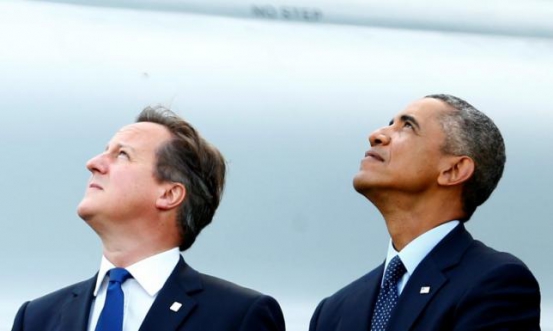
Britain’s decision to quit the European Union could send damaging shockwaves through the bedrock Anglo-American “special relationship,” raising questions about London’s willingness and ability to back U.S.-led efforts in global crises ranging from the Middle East to Ukraine.
The loss of the strongest pro-U.S. voice within the 28-nation bloc, as a result of the “Brexit” referendum, threatens to weaken Washington’s influence in European policymaking and embolden Russian President Vladimir Putin to further challenge the West, analysts and former diplomats say.